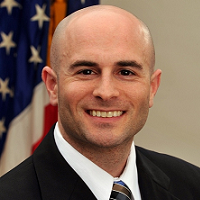 By Steven Posnack, M.S., M.H.S., Deputy National Coordinator for Health Information Technology
By Steven Posnack, M.S., M.H.S., Deputy National Coordinator for Health Information Technology
Twitter: @ONC_HealthIT
Steven’s Twitter: @HealthIT_Policy
In case you missed it, Health Datapalooza happened toward the end of February. The aptly named conference always invokes a bit of fun while at the same time being a high octane mix of data scientists, policy makers, health care leaders, entrepreneurs, researchers, and patient advocates.
Now over a decade old, Health Datapalooza is part of the “early season” of health conferences and is often a launch point for new products, prize competitions, program announcements, and collaborations. I’ve also found it to be a great opportunity for our staff to engage directly with colleagues out in the field and to hear their perspectives firsthand.
ONC was out and about, including a keynote by the national coordinator, Micky Tripathi, who talked about ONC’s implementation of the 21st Century Cures Act, the progress we’ve made on the Trusted Exchange Framework and Common Agreement (TEFCA), and what’s to come as we look ahead in 2023 and beyond.
Along those lines, and since I know everyone loves a recap, we thought our readers might appreciate a comprehensive, but non-exhaustive list of all the key happenings in one place. So here’s a quick look at the health IT and interoperability actions, updates, and shoutouts that happened this year around Health Datapalooza! (Author’s prerogative to start with the ONC stuff first.)
- Regarding TEFCA, a first cohort of six Qualified Health Information Network (QHIN) applicants were accepted to begin the onboarding and implementation process.
- On February 22nd ONC released a new Social Determinants of Health (SDOH) Toolkit and highlighted insights from Learning Forum Sessions for the Health IT Community.
- ONC opened the comment period for the Standards Version Advancement Process (SVAP).
- We made mention of the ONC-led Inferno test tool for the Health Level Seven (HL7®) Fast Healthcare Interoperability Resources (FHIR®), including new test suites that go beyond just certification conformance.
- Speaking of Inferno, we’re in the final development stages of a pilot approach to include Inferno test kits that focus on the CARIN IG for blue button. Stay tuned over the next couple of months for more information.
- Equally, if you’re interested in how certified API deployment and implementation is going, I highly encourage you to check out the API endpoint monitoring dashboard we’ve created called Lantern. As more and more certified FHIR APIs conformant to the Cures Act are deployed in production, this dashboard and it’s underlying tooling will provide substantive insights to the health IT ecosystem. Also if you’re a clinician or third-party app developer, don’t sleep on the prior educational resource that we published for the API Condition of Certification.
- Updates from CDC, CMS, and ONC were discussed regarding the latest findings and progress made under USCDI+. Notably, a separate ONC USCDI+ effort with HRSA will soon kick off. It’ll focus on testing a forthcoming test kit for the UDS+ IG with the UDS Test Cooperative (UTC).
- From an HHS-wide perspective this blog post by our colleagues in the HHS Office of the Assistant Secretary for Health summarize some great items, including:
- CancerX, announced by the White House as part of the Cancer Moonshot, is a public-private partnership developed as a national accelerator to boost innovation in the fight against cancer.
- PandemicX, a six-month pilot program, incubated 15 teams of entrepreneurs. The teams’ innovative solutions addressed challenge areas related to HHS’ priorities with a focus on health equity.
- The 2023 Health Equity DataJam, a data-driven sprint and call-to-action for the public to transform HHS data into digital tools, insights, and innovation for real-world impact.
- Our colleagues from the VA re-upped their API pledge to advance technology capabilities to better serve Veterans in the community. We look forward to hearing more about their efforts to leverage this technology and partnerships to prevent Veteran suicide, provide more care and benefits to Veterans impacted by toxic exposures, and support Veterans challenged by social determinants of health.
- The Sync for Social Needs initiative (launched in sync with the White House Conference on Hunger, Nutrition, and Health) got a bump from a joint statement by NCQA, the Joint Commission, and NQF regarding social determinants of health.
- The team over at Project Clarity, a multi-stakeholder coalition focused on how the “private sector can collaborate to develop consensus on technical and definitional frameworks for implementing price transparency regulations” announced a commitment to standardize 100 care bundles in 2023.
This post was originally published on the Health IT Buzz and is syndicated here with permission.
